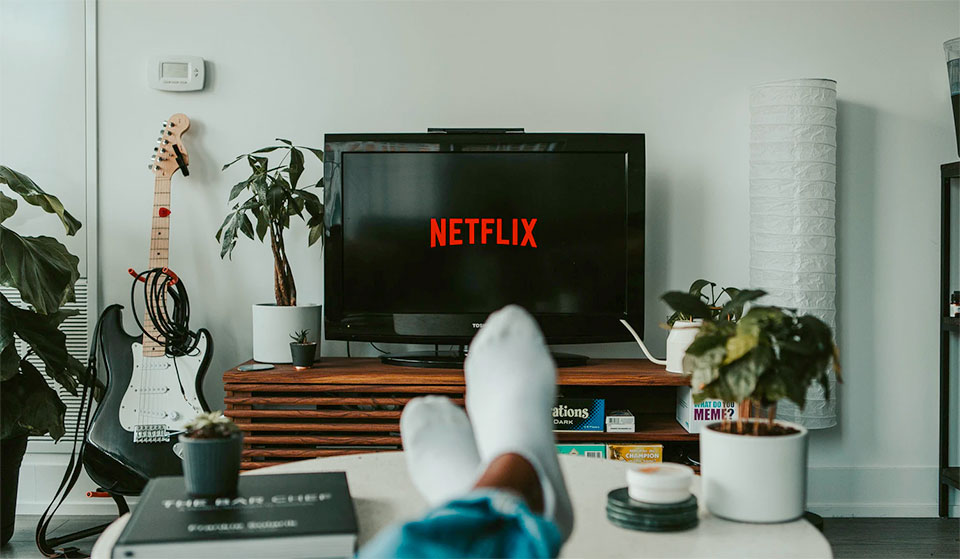In These 4 Industries, Changes Brought On by COVID-19 Are Likely to Be Permanent

In the early stages of the COVID-19 pandemic and lockdowns, restless consumers turned to the internet to carry out their everyday activities and get entertainment. Countless innovations emerged during this time, but many of them could actually be here to stay for the long haul. Rhett Power covers four industries that are especially likely to maintain their pandemic-era shifts.
As consumers sheltered in place in the midst of the COVID-19 pandemic, it’s no surprise that they went online for everything from shopping to entertainment.
Now that life outside the household is starting to resume, however, people are still opting for the internet over in-person experiences. Even as vaccine distributions continue around the globe and many areas lift all kinds of restrictions on social interaction, changes brought on by COVID-19 appear likely to stick around in certain business areas.
Here are a few of the industries with pandemic-era innovations that are likely to continue for the long term:
- E-commerce.
E-commerce used to be one choice in a sea of shopping options for consumers. Now, it’s the sea — and other options are adrift on life rafts hoping for favorable currents. According to reporting from Forbes, e-commerce orders were up 129% year over year in the U.S. and Canada as of April 2020.Data collected by Finaria shows that fashion is one of the biggest sectors of the exploding e-commerce industry, and forecasts predict 15% year-over-year growth to $759.5 billion this year. Jill Manoff, editor in chief of Glossy, doesn’t mince words about the e-commerce trend: “If you’re waiting for this to end, you say we’re gonna be back to normal in two months, that we’re just biding our time and getting through it, then you’re gonna be screwed.”
- Online gambling.
When a large portion of the world was working from home and each day seemed identical to the last, it’s no wonder consumers looked to add some new entertainment to the mix with online gambling. Data from Global Poker, for example, demonstrates a 43% increase in use of online poker sites in the U.S. after COVID-19 stay-at-home orders began. And though online sports betting took a hit at the beginning of the pandemic with the cancellation of major events (including March Madness and the Masters), league schedules are largely back on track now. Globally, the online gambling industry was worth more than $465 billion in 2020, and it’s expected to reach as much as $516 billion by the end of this year.Pent-up demand and a growing number of states legalizing online gambling will no doubt contribute to its continued rise.
- Grocery shopping.
It might be less glamorous than fashion and less exciting than technology, but grocery is the second-largest retail trade segment by market size, with more than $658 billion in U.S. sales predicted for this year. So when consumer grocery shopping habits change, people notice. Data from App Annie shows a 460% increase in average daily downloads of the Walmart Grocery app last April compared to last January, and Target’s app also enjoyed a 98% increase in downloads during the early days of the COVID-19 crisis.Prior to the pandemic, the Food Marketing Institute anticipated $100 billion in online grocery sales by 2025. Now, a report from Mercatus estimates the figure will be more like $250 billion — a massive increase spurred by consumers’ grocery shopping habits during quarantine. According to Nilam Ganenthiran, president of Instacart, online grocery ordering for pickup is “well north of a billion-dollar business for us, and growing much, much faster than even the delivery business.”
- Streaming.
It’s no surprise that video streaming increased during the pandemic, but it might be surprising to learn how companies are putting more resources into streaming as a result. Disneyland might be back open, for example, but Disney itself will never be the same. Disney CEO Bob Chapek explains that the company’s increased focus on its Disney+ streaming service was an inevitable transition that was only accelerated by the pandemic. That doesn’t mean it was an easy one, and the complete restructuring of its media and entertainment divisions has been a pivot of unprecedented size and speed.Disney’s transition is a shake-up for the streaming industry, which has more competitors than ever. Although the average American pays for three different streaming subscriptions, there are countless streaming services jockeying for business — and traditional cable companies are feeling more pressure than ever.
Even with life returning to some semblance of normalcy, certain consumer behaviors have been turned upside down by the pandemic in ways that will reverberate throughout industries for decades. When it comes to shopping and entertainment, online is in — whether consumers can go out or not.
Written by Rhett Power.
Online Wagering is illegal in some Jurisdictions. It is your responsibility to check your local regulations before playing online. CEOWORLD Magazine LTD takes no responsibility for your actions.
Add CEOWORLD magazine to your Google News feed.
Follow CEOWORLD magazine headlines on: Google News, LinkedIn, Twitter, and Facebook.
This report/news/ranking/statistics has been prepared only for general guidance on matters of interest and does not constitute professional advice. You should not act upon the information contained in this publication without obtaining specific professional advice. No representation or warranty (express or implied) is given as to the accuracy or completeness of the information contained in this publication, and, to the extent permitted by law, CEOWORLD magazine does not accept or assume any liability, responsibility or duty of care for any consequences of you or anyone else acting, or refraining to act, in reliance on the information contained in this publication or for any decision based on it.
Copyright 2024 The CEOWORLD magazine. All rights reserved. This material (and any extract from it) must not be copied, redistributed or placed on any website, without CEOWORLD magazine' prior written consent. For media queries, please contact: info@ceoworld.biz
SUBSCRIBE NEWSLETTER












